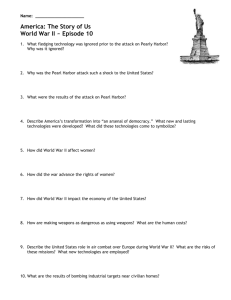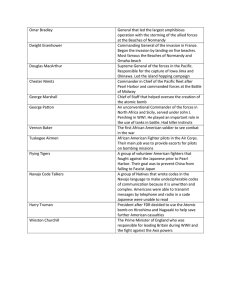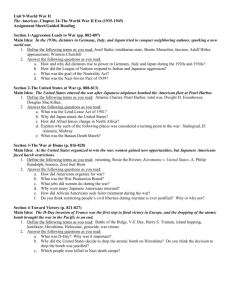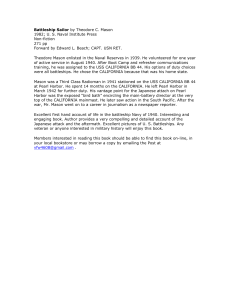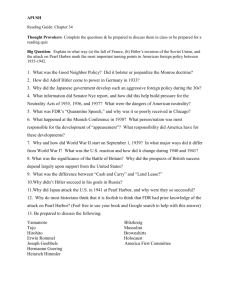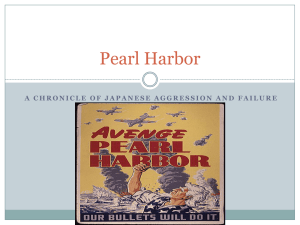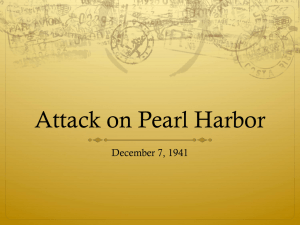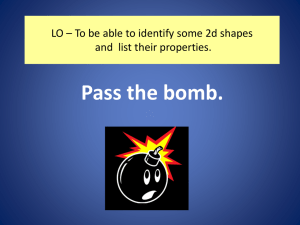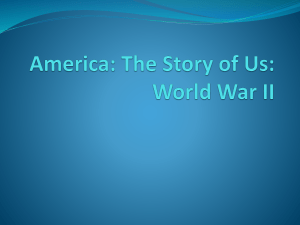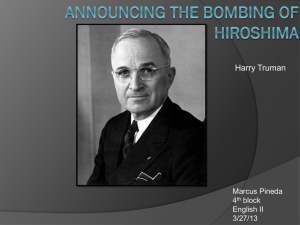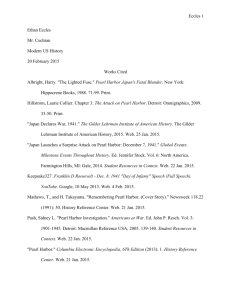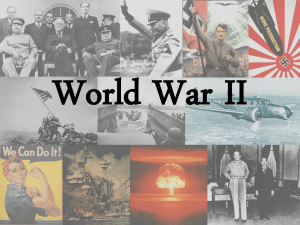An Account
advertisement
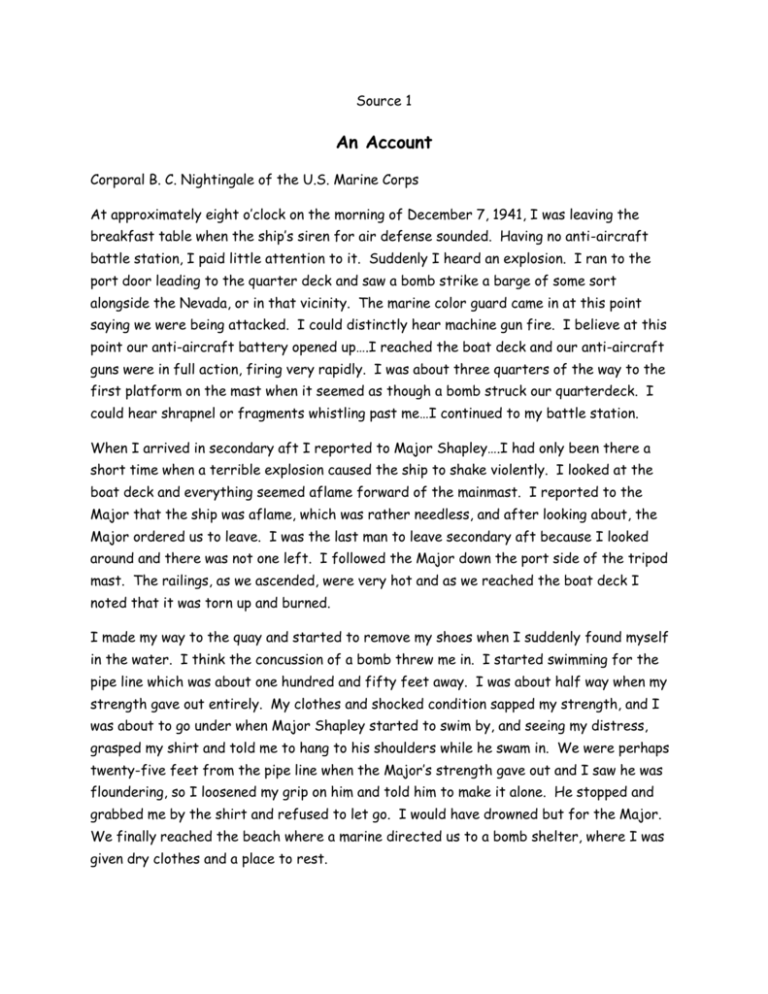
Source 1 An Account Corporal B. C. Nightingale of the U.S. Marine Corps At approximately eight o’clock on the morning of December 7, 1941, I was leaving the breakfast table when the ship’s siren for air defense sounded. Having no anti-aircraft battle station, I paid little attention to it. Suddenly I heard an explosion. I ran to the port door leading to the quarter deck and saw a bomb strike a barge of some sort alongside the Nevada, or in that vicinity. The marine color guard came in at this point saying we were being attacked. I could distinctly hear machine gun fire. I believe at this point our anti-aircraft battery opened up….I reached the boat deck and our anti-aircraft guns were in full action, firing very rapidly. I was about three quarters of the way to the first platform on the mast when it seemed as though a bomb struck our quarterdeck. I could hear shrapnel or fragments whistling past me…I continued to my battle station. When I arrived in secondary aft I reported to Major Shapley….I had only been there a short time when a terrible explosion caused the ship to shake violently. I looked at the boat deck and everything seemed aflame forward of the mainmast. I reported to the Major that the ship was aflame, which was rather needless, and after looking about, the Major ordered us to leave. I was the last man to leave secondary aft because I looked around and there was not one left. I followed the Major down the port side of the tripod mast. The railings, as we ascended, were very hot and as we reached the boat deck I noted that it was torn up and burned. I made my way to the quay and started to remove my shoes when I suddenly found myself in the water. I think the concussion of a bomb threw me in. I started swimming for the pipe line which was about one hundred and fifty feet away. I was about half way when my strength gave out entirely. My clothes and shocked condition sapped my strength, and I was about to go under when Major Shapley started to swim by, and seeing my distress, grasped my shirt and told me to hang to his shoulders while he swam in. We were perhaps twenty-five feet from the pipe line when the Major’s strength gave out and I saw he was floundering, so I loosened my grip on him and told him to make it alone. He stopped and grabbed me by the shirt and refused to let go. I would have drowned but for the Major. We finally reached the beach where a marine directed us to a bomb shelter, where I was given dry clothes and a place to rest. Source 2 From American Journey Text—Pages 748-749 At 7:55 A.M. on Sunday, December 7, 1941, Japanese warplanes attached the American military base at Pearl Harbor, Hawaii, putting an end to American neutrality. Rear Admiral William R. Furlong reported: “I was on the deck of my flagship and saw the first enemy bomb fall…Plumes over one hundred feet high went up from bombs that hit close alongside of battleships.” The attack devastated the American fleet, destroying 8 battleships, 3 cruisers, and 4 other vessels. More than 2,400 soldiers, sailors, and civilians were killed. Fortunately, at the time of the attack, the navy’s three aircraft carriers were at sea. Their escape from destruction provided the only good news that day. Grace Tully, one of the president’s secretaries, received an urgent call to report to the White House. She later recalled: Most of the news on the…attack was then coming to the White House by telephone from Admiral Stark, Chief of Naval Operations, at the Navy Department…each report more terrible than the last, and I could hear the shocked unbelief in Admiral Stark’s voice.” Pearl Harbor was the worst defeat in US military history. Yet Pearl Harbor also united Americans. All debate about involvement in the war ended. On the day after Pearl Harbor, President Roosevelt asked Congress for a declaration of war, calling December 7 “a date which will live in infamy [shame].” Congress quickly approved the president’s request to declare war on Japan. Three days later Germany and Italy, Japan’s allies, declared war on the US. Congress then declared war on them as well. The United States had joined the Allied nations—including Great Britain, France, and the Soviet Union—against the Axis Powers— Germany, Italy, and Japan—in World War II.
